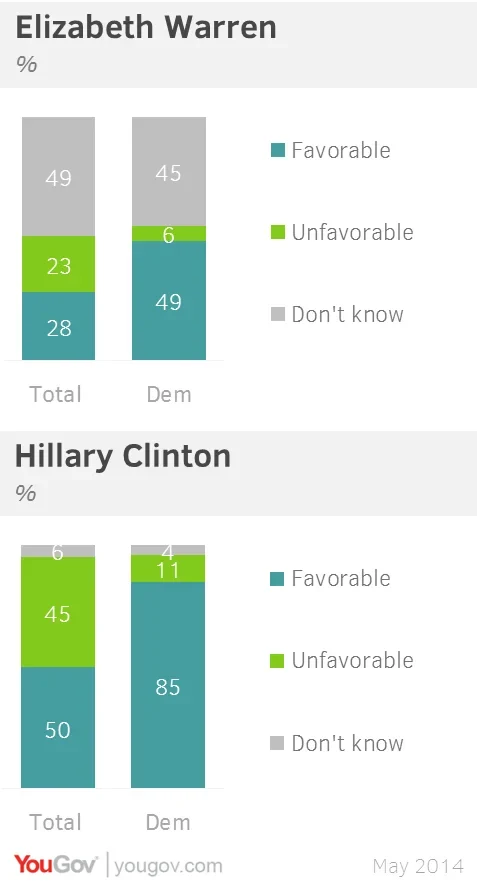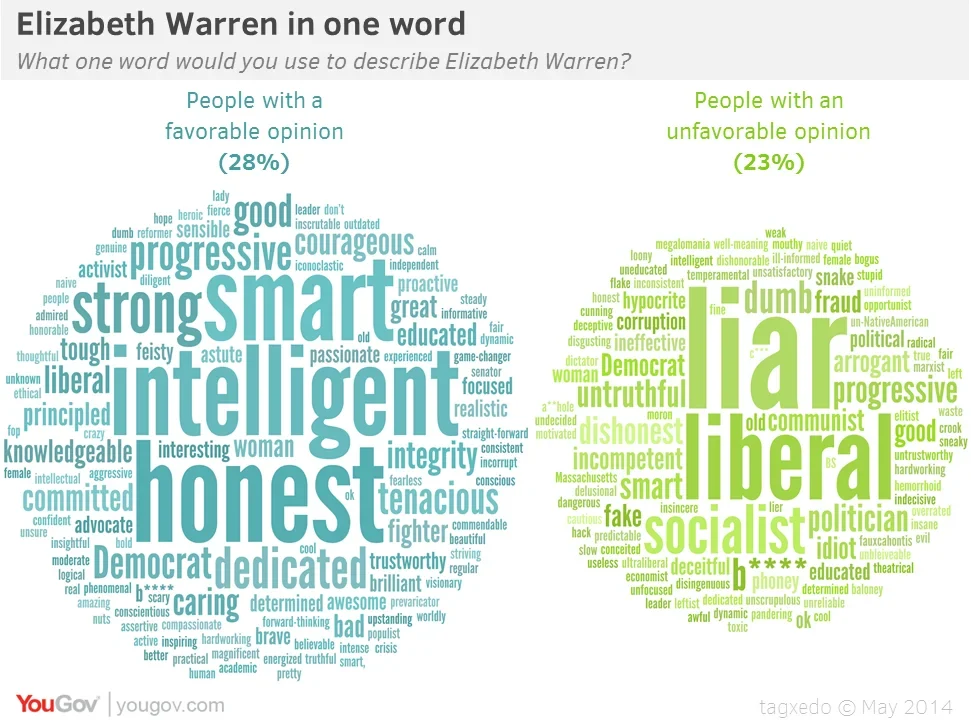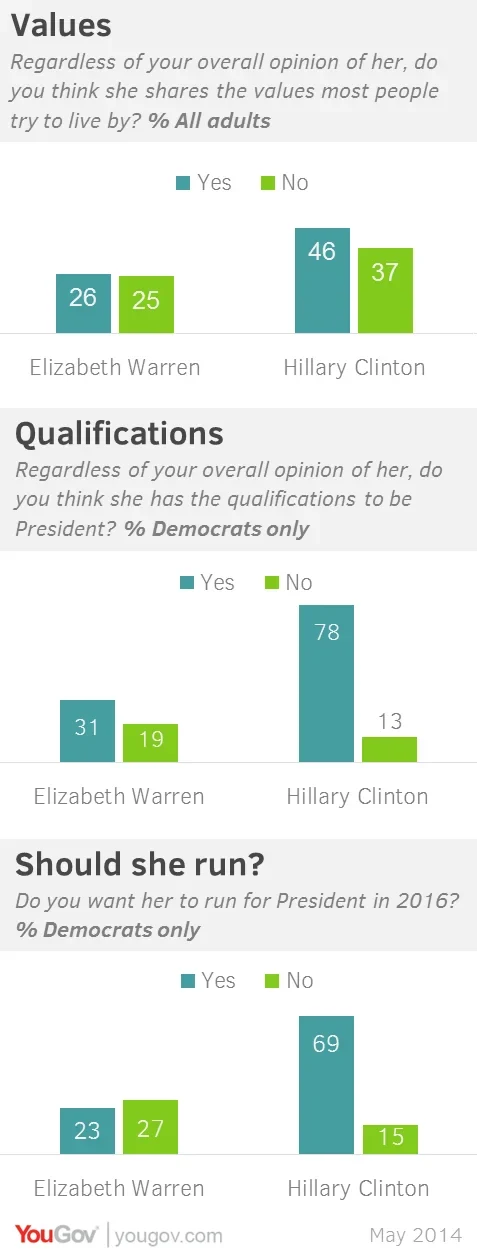Elizabeth Warren's image among those who know her is very much like the public's image of Hillary Clinton – with one exception
Massachusetts Senator Elizabeth Warren has emerged as someone who could challenge Hillary Clinton for the 2016 Democratic nomination. While the first-term Senator has published a book, an action that sometimes precedes a run for the Presidency, she has so far denied that she will run. The latest Economist/YouGov Poll finds that although Warren is not well-known (just about half the public had nearly as many Democrats have no opinion of her as yet), her image among those who know is very much like the public’s image of Hillary Clinton – with one exception.

By a narrow margin, more Americans have a favorable than an unfavorable opinion of Warren – and among Democrats, the balance is better than seven to one (with only 6% of Democrats unfavorable).
Three months ago, a similar proportion of Democrats had an opinion of Warren. While the proportion of Democrats with knowledge of Warren hasn’t changed in the last three months, her image has gotten better. In mid-February, only 40% of Democrats were favorable, and 15% were not.
Warren still trails far behind the other potential Democratic female presidential contender, Hillary Clinton, when it comes to both public awareness and positive assessments by Democrats. Only 5% nationwide have no opinion about Clinton. And among Democrats, Clinton is seen favorably by 85%, with only 11% unfavorable.
The two women have similar strengths and similar weaknesses, though the balances are slightly different. Americans who know Warren cite almost the same characteristics to describe her as they use to describe Clinton. Those who had unfavorable opinions of Clinton in an Economist/YouGov Poll conducted in February focused on her honesty – or rather, her lack of it. A secondary concern was her liberalism. Those two items also emerged when those who were unfavorable towards Warren were asked how they would describe her. But for Warren, concerns about her liberal ideology (and for some detractors, what they describe as a “socialist” ideology) outweighed worries about her honesty.
Many of those with favorable opinions of Warren also mention the same characteristics that those that like Hillary Clinton cite: her intelligence and her strength. But just about as many who say Warren is “intelligent” cite Warren’s honesty. “Honest” was hardly mentioned in the word cloud for those with favorable opinions of Clinton.

Warren fares better than Clinton with the public when it comes to honesty. Americans overall say Warren is more likely to say what she really believes than to say mostly what other people might want to hear. They are divided on Clinton. An twice as many Americans say Clinton has less honesty and integrity than most people in public life than think that about Warren.
Democrats don’t necessary share those concerns. Two-thirds of them think Clinton mostly says what she really believes. Nearly four in ten describe Clinton as having more honesty and integrity than most in public life.

Despite Warren’s strengths, Americans aren’t sure she is one of them: they divide on whether or not she shares the values most Americans try to live by. In February, Clinton was seen by the public overall as likely to share their values.
Three in four Democrats said Clinton shared their values; just under half say this today about Warren.
Warren also has yet to convince the public – and many Democrats – that she is ready to be President. Just 19% of the public says she is qualified to be President. And while 31% of Democrats think Warren is qualified, that figure is dwarfed by the 78% of Democrats who believe Clinton is.
Americans also are unsure about Warren’s ability to handle an international crisis.
So there is not an overwhelming interest among Democrats in a 2016 Warren run for the White House. Much like the Republican ambivalence seen in recent Economist/YouGov Polls towards the candidates who have expressed interest in running in 2016, Democrats are divided on a Warren run for the Presidency. 23% want her to run; 27% do not.
Nationally, twice as many Americans don’t want Warren to run as do.
That continues to put Warren well behind Clinton as a Democratic choice. Although many people are yet to form an opinion of the Massachusetts Senator, Warren has a long way to go to become anywhere near as popular with Democrats as the former First Lady continues to be.
Image: Getty
Full results can be found here.
Economist/YouGov poll archives can be found here.









